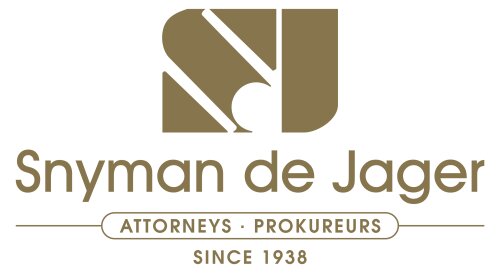Best Conveyancing Lawyers in Pretoria
Share your needs with us, get contacted by law firms.
Free. Takes 2 min.
Free Guide to Hiring a Real Estate Lawyer
List of the best lawyers in Pretoria, South Africa
About Conveyancing Law in Pretoria, South Africa
Conveyancing is the legal process of transferring ownership of immovable property, such as land or houses, from one person or entity to another. In Pretoria, South Africa, conveyancing is a specialized area of law that requires detailed knowledge of property regulations, local by-laws, and national legislation. Only qualified attorneys, known as conveyancers, are legally permitted to carry out the conveyancing process. Whether buying, selling, or subdividing property, the conveyancing procedure ensures the transfer is lawful, registered, and free from any outstanding claims or encumbrances.
Why You May Need a Lawyer
Dealing with property transactions can be complex, and there are several reasons why you might need a conveyancing attorney in Pretoria:
- Buying or selling property: Ensuring all legal aspects of the transfer are managed correctly and that your interests are protected in the agreement.
- Transferring title deeds: Registering a change of ownership with the Deeds Office upon completion of a sale.
- Securing or cancelling a bond: Navigating the registration or cancellation of a mortgage bond with a financial institution.
- Subdividing or consolidating property: Ensuring compliance with municipal and zoning requirements.
- Estate administration: Transferring property due to inheritance, divorce, or deceased estates.
- Resolving property disputes: Settling issues such as incorrect title details, boundaries, or rights of way.
Local Laws Overview
In Pretoria, conveyancing is governed by several national and local statutes. Key aspects include:
- The Deeds Registries Act 47 of 1937 governs the registration of property transactions at the Deeds Office.
- The Sectional Titles Act 95 of 1986 deals with ownership and management of apartments or townhouse complexes.
- The Alienation of Land Act 68 of 1981 requires that property sale agreements must be in writing and signed by all parties.
- Local municipal by-laws in Pretoria, administered by the Tshwane Metropolitan Municipality, regulate matters such as land use, zoning, building plans, and rates clearance certificates.
- All conveyancing practitioners must be admitted attorneys with an additional conveyancer’s qualification, ensuring the process is professionally managed and legally compliant.
Frequently Asked Questions
What is the conveyancing process in Pretoria?
The conveyancing process generally involves preparing the sale agreement, conducting property searches, obtaining clearance certificates, preparing transfer documents, paying transfer duties, and registering the transfer at the Deeds Office.
Who can perform conveyancing in Pretoria?
Only qualified and registered conveyancers, who are attorneys with a specialized conveyancing qualification, can legally perform conveyancing work in Pretoria.
How long does a property transfer usually take?
On average, a standard property transfer in Pretoria takes between 6 to 12 weeks, depending on factors such as bond approval, municipal clearance, and the responsiveness of buyers and sellers.
What costs are involved in conveyancing?
The main costs include transfer duty (tax), conveyancer's fees, Deeds Office registration fees, and municipal clearance certificates. Each is payable at different points in the process.
Do I need to be present for the conveyancing process?
Most steps in the process can be handled by your conveyancer on your behalf, though you may need to sign documents and provide original identification at certain stages.
What documents do I need to provide?
Typical documents include the signed offer to purchase, identification documents, proof of address, marriage certificates (if applicable), and details of the property in question.
Can I choose my own conveyancer?
Yes, although it is common practice in South Africa for the seller to appoint the conveyancing attorney, the parties can agree otherwise if both consent.
What happens if there is an existing bond on the property?
The existing bond must be cancelled before transfer can take place. The conveyancer will work with the bondholder’s attorney to handle the cancellation and settlement process.
Must the property rates be paid up before transfer?
Yes, the seller must ensure that all municipal rates and taxes are paid up to date and obtain a rates clearance certificate from the Tshwane Municipality before the transfer can proceed.
What if there are delays in the process?
Delays can occur due to missing documents, delays in municipal clearance, outstanding payments, or slow responses from financial institutions. A competent conveyancer will communicate regularly and resolve issues as they arise to avoid unnecessary delays.
Additional Resources
For more information and assistance, consider the following resources related to conveyancing in Pretoria:
- Deeds Office Pretoria - For property registration queries and certified copies of title deeds.
- Tshwane Metropolitan Municipality - For rates clearance certificates and local zoning information.
- The Law Society of South Africa - For finding registered conveyancers and legal guidelines.
- Department of Human Settlements - For information on housing policy and property rights in South Africa.
Next Steps
If you need legal assistance with a property transaction in Pretoria, consider taking the following steps:
- Gather all relevant information and documents related to your property and transaction.
- Consult with a qualified conveyancer who is familiar with Pretoria’s property laws and local municipal requirements.
- Ask for a breakdown of expected costs and timelines before instructing a conveyancer to proceed.
- Communicate openly and promptly with your conveyancer to ensure the process runs smoothly.
- If you encounter legal disputes or uncertainties, seek further advice from reputable legal professionals or organizations specializing in property law.
Taking these proactive steps can help protect your interests and ensure your property transaction is completed efficiently and in accordance with South African law.
Lawzana helps you find the best lawyers and law firms in Pretoria through a curated and pre-screened list of qualified legal professionals. Our platform offers rankings and detailed profiles of attorneys and law firms, allowing you to compare based on practice areas, including Conveyancing, experience, and client feedback.
Each profile includes a description of the firm's areas of practice, client reviews, team members and partners, year of establishment, spoken languages, office locations, contact information, social media presence, and any published articles or resources. Most firms on our platform speak English and are experienced in both local and international legal matters.
Get a quote from top-rated law firms in Pretoria, South Africa — quickly, securely, and without unnecessary hassle.
Disclaimer:
The information provided on this page is for general informational purposes only and does not constitute legal advice. While we strive to ensure the accuracy and relevance of the content, legal information may change over time, and interpretations of the law can vary. You should always consult with a qualified legal professional for advice specific to your situation.
We disclaim all liability for actions taken or not taken based on the content of this page. If you believe any information is incorrect or outdated, please contact us, and we will review and update it where appropriate.
















